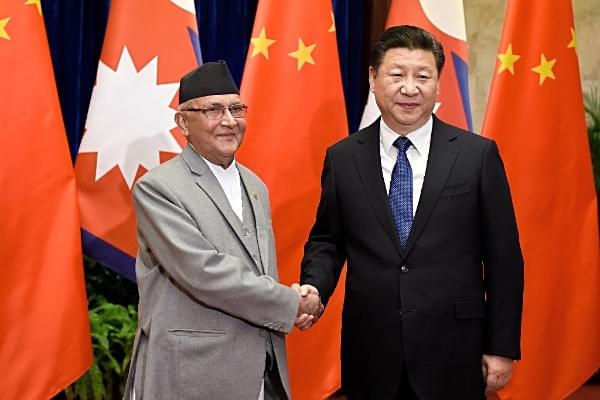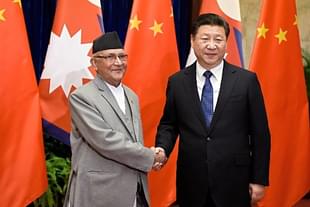Insta
India Loses Monopoly Over Nepal’s Transit After China Allows Access To Its Land And Seaports
Swarajya Staff
Sep 08, 2018, 07:20 PM | Updated 07:20 PM IST
Save & read from anywhere!
Bookmark stories for easy access on any device or the Swarajya app.


In an unprecedented move from China, India lost its monopoly over Nepal trade and transit as China allowed the landlocked neighbour to access four of its seaports and three land ports, reports Press Trust of India.
China allowed access to Shenzen, Lianyungang, Zhanjiang and Tianjin, the latter being the nearest seaport at a distance of around 3,300 km from the Nepalese border, according to foreign ministry sources.
This move is reported to provide Nepal with alternative routes to engage in international trade.
As per the new arrangement, Chinese authorities will provide permits to trucks and containers ferrying Nepal-bound cargo to and from Xigatse in Tibet.
Nepal, which had been er relying on Indian ports, can now diversify its access to seaports and alternative routes for third-country trade.
Traders may avail any mode of transport - rail or road to access to seaports for third-country trade, said Ravi Shanker Sainju, the joint secretary at the ministry of industry, commerce and supplies.
He led the Nepalese delegation during talks at the meeting of Nepalese and Chinese authorities on Wednesday (5 September) and Thursday (6 September) for the finalisation of the protocol of Transit and Transport Agreement (TTA) with China.
The Transit and Transport Agreement with China, signed in March 2016 during Prime Minister K P Sharma Oli's China visit, will come into force once the protocol is exchanged, officials said. Madhesi agitation in 2015 had forced Nepal to explore trade links with China and reduce its long-term dependence on India.





